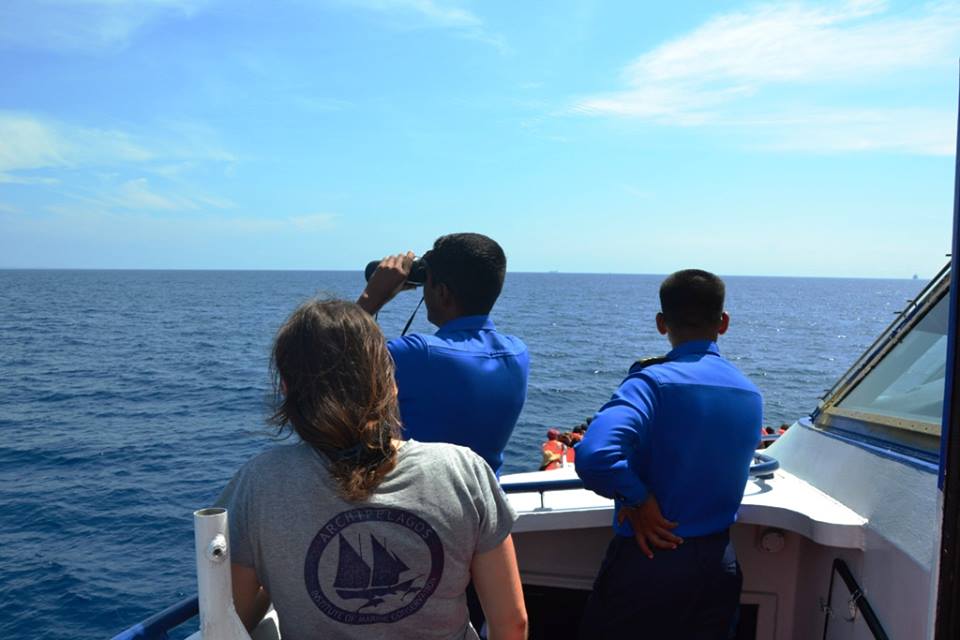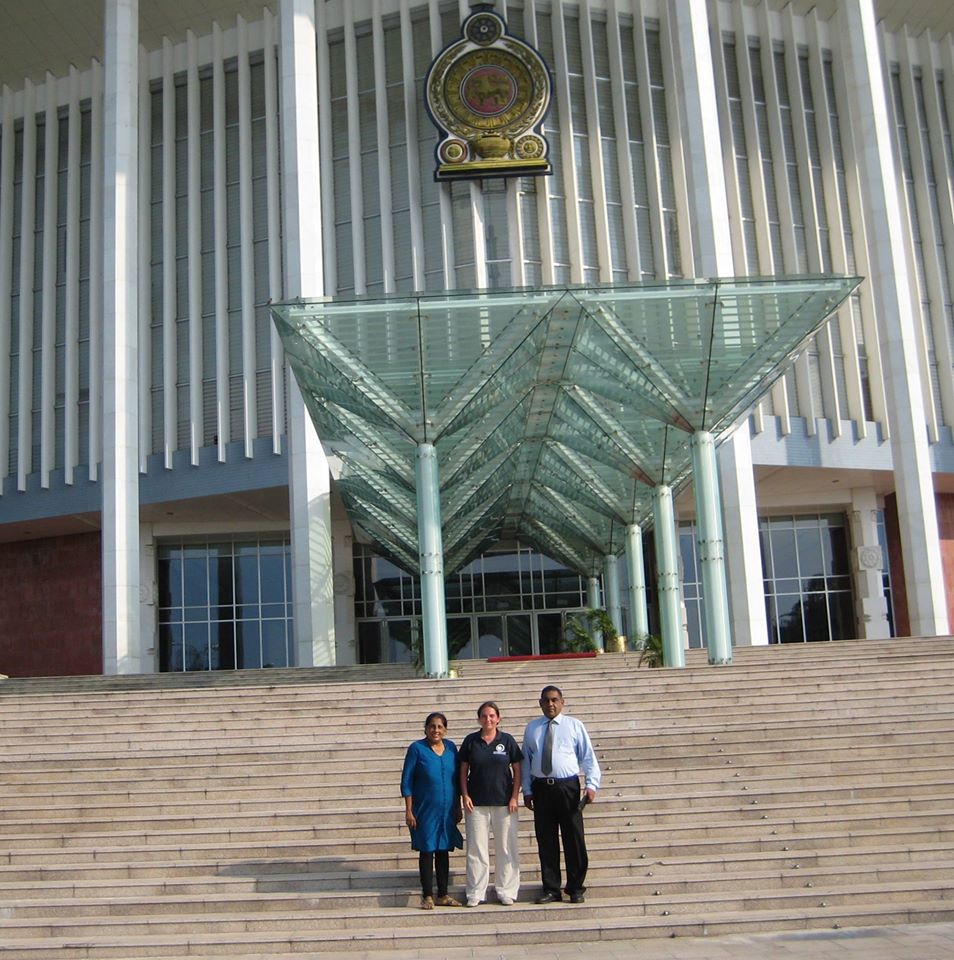In parallel with the various research, conservation and educational actions of Archipelagos Institute carried out in many parts of Greece, our concern for the future of our seas exceed the limits of the Mediterranean.
One of the main problems we try to address in the more distant seas is the frequent and fatal collisions of whales with fast commercial ships recorded in the waters south of Sri Lanka in the Indian Ocean. This area is considered as one of the most significant cetacean aggregation zones in the world, while also supporting an important population of blue whales – the largest mammal that has ever lived on the planet.

With the aim of contributing to the solution of this complex problem, researchers of Archipelagos Institute are cooperating with our colleagues in Sri Lanka, with whom we share the same concern for the survival of these special animals. Our aim is the development and application of measures that will reduce incidents of ship strikes of whales with commercial vessels. For this purpose a new International Oceanology Centre is currently in the process of being established, in which Archipelagos will be among the founding members.

This exceptional biodiversity has been relatively unknown since, for years, Sri Lanka received little media attention on its natural wealth due to its long civil war which ended about seven years ago. Today, Sri Lanka has recovered from this war, developing its economy, while at the same time taking responsible measures to protect their wildlife.

